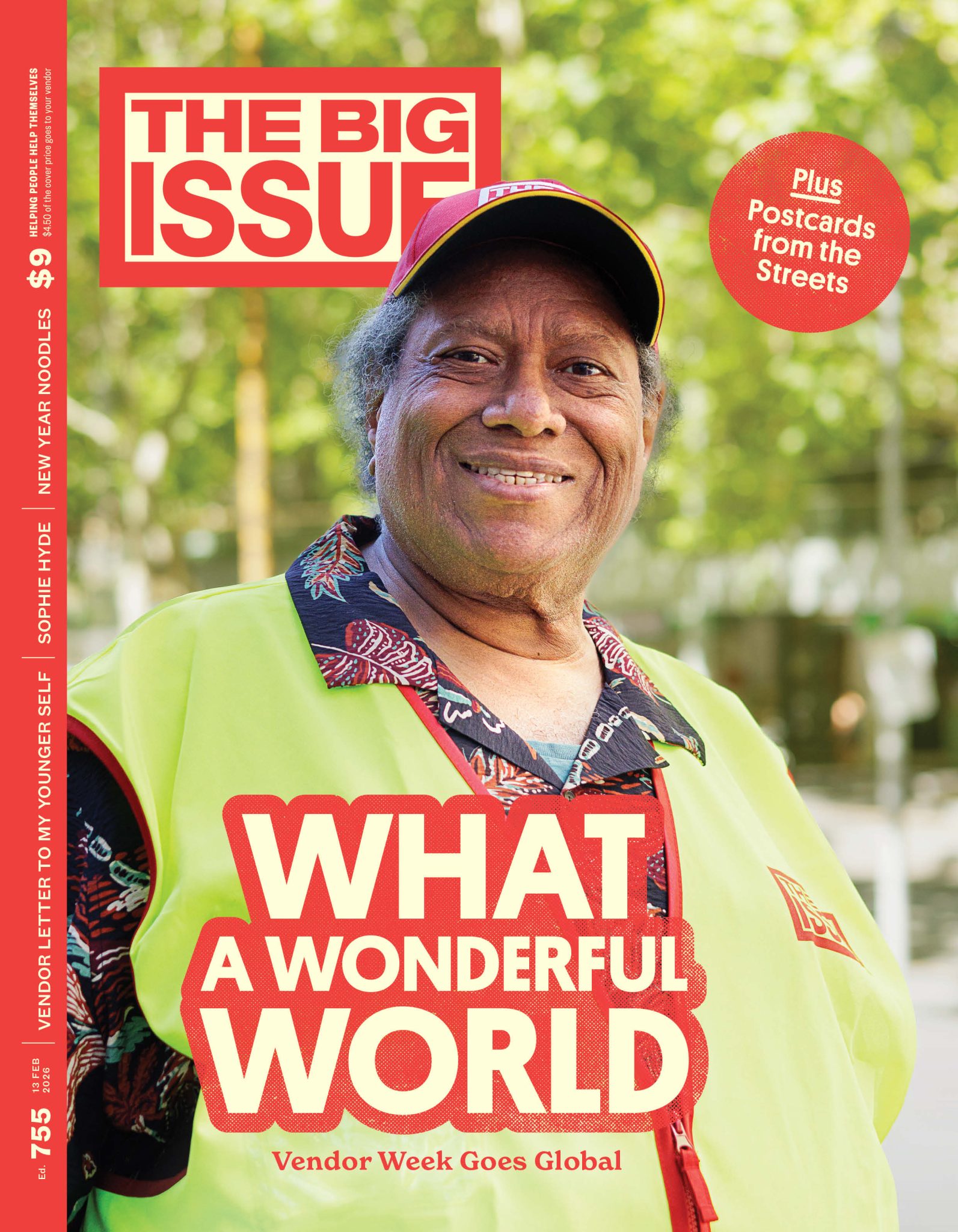Angie McMahon grew up with Bruce Springsteen as the soundtrack to all her favourite memories: she tells us why The Boss is her kindred guide.
A few weeks ago, in an unfamiliar place, I was lit up by an old, familiar feeling. “New Jersey turnpike, riding on a wet night…” the opening lines of a favourite dark lullaby played as I unwound into a boogie and a grin. I hadn’t expected to run into my old friend on this dance floor. I’d followed my Irish roots to a rave in the town of Cork, and the DJ was closing the night with the best ‘State Trooper’ remix I’d ever heard, blissful under the rain and stars in a medieval fort. The spooky rendition put me in a trance and I landed in my body, calm. In my life, this expansive feeling has often risen to the sound of Springsteen, and if my memories were a slideshow that I had to soundtrack, these would be a few of the pictures and songs…
The Nebraska record, which started as cassette demos that Bruce carried in his pocket decades before this remix was made, is the album I turn to when I’m staring at a blank page, hunched over my guitar with an empty songwriting tank. If I’m at a loss, I try to occupy the rhythm of this internal world that he conjured, and paint from there.
‘Thunder Road’, the colossal opener of Born to Run, is the road from Kerang to Melbourne after visiting our family’s farm. I hear that song on the drive whether it’s playing through the speakers or not – it usually is – cutting through the dry paddocks and huge sky. I last heard it a week ago on that exact drive with my dad, who wisely bestowed Bruce on us through the six-stacker CD player on family car trips when we were kids.
‘Badlands’, specifically the first three seconds of that song, is the first time I remember actually listening to drums. I asked my patient parents to go back to the start and play the intro over and over. That explosion of thundering energy was something I hadn’t found yet in music – or anywhere. It’s the reference that I use any time I’m in the studio with a drummer and want to feel like they are yelling in the language of the elements.
But it’s not just about these songs anymore, the ones that live in my bones. Bruce has a legacy of so many records I doubt I’ll ever get around to hearing them all, though a few of them are foundational pillars in my evolving temple of creativity. It wasn’t until reading the Born to Run memoir, and observing his approach to politics and life, that I recognised him as a kindred guide. Like any good parent (rock’n’roll or otherwise) Bruce taught me the responsibilities that come with the job.
First, there’s the commitment to bring your audience into the sky with you. When I’m on stage and insecure thoughts or distractions start warping the performance, my guide is Springsteen’s story of his first show in London. He provides a blueprint for launching your heart and body into the show like it’s the last one you’ll ever play. He taught me that the stage is no place for overthinking, and that it’s the performer’s responsibility to “help the audience feel free enough to let themselves go”.
Second, he knows how to use his platform for good, and has been a longtime champion of human rights and social justice. He’s consistently thrown his voice behind those who rally in support of tolerance, inclusion, reproductive rights, civil rights, racial justice, LGBTQI+ and environmental causes. From the stage he empowers the audience to enjoy the show and enjoy life, while thoughtfully saying what needs to be said in the face of hate.
This lesson feels most important right now. He’s always been good at putting it into the music (“poor men want to be rich, rich men want to be king, and a king ain’t satisfied till he owns everything”) and he enters the trenches with courage and empathy, empowering us to do that too. His criticism of the current US administration brought threats from the White House against him, and Bruce’s response was to double down on his words. In a climate where more and more people are reckoning with fear, there’s no perfect artist or activist, but the key ingredient is guts. That’s what we need more of, and that’s what he’s got.
On the dance floor in Ireland, I was illuminated with the feeling of being home, of knowing what I was made from. I’m a descendant of the Irish, and I’m a descendant of Springsteen. A product of the voice and rhythms of a deep thinker, trying to make it about more than himself, channelling bottomless energy into the mighty spiritual force of music.
By Angie McMahon
Published in Ed#748
Angie McMahon is an award-winning musician from Melbourne.
Want more of The Big Issue?
Subscribe to The Big Issue magazine to enjoy powerful journalism, stories from our vendors, and more — all delivered straight to your door.
Subscribe now.
